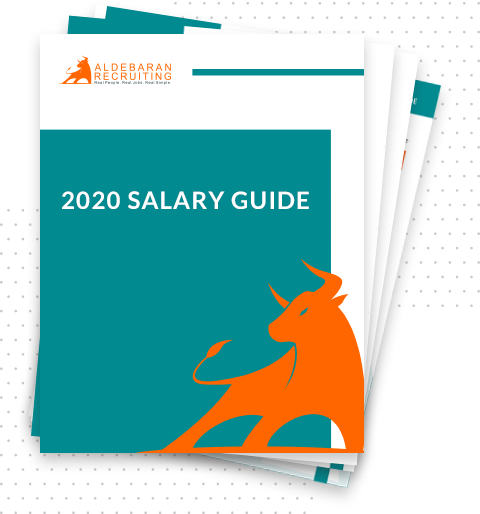The engineering talent shortage has reached critical proportions across every sector. With the United States alone requiring approximately 400,000 new engineers annually through 2030, and nearly one in three engineering positions expected to remain unfilled during this period, companies face unprecedented challenges in securing the technical talent they need to remain competitive. The average time to fill engineering positions now extends to 62 days, significantly longer than most other industries, making the selection of the right recruiting partner more crucial than ever before.
Industry Expertise and Technical Understanding
The most effective engineering recruiters possess deep technical knowledge that extends beyond basic keyword matching. They understand the nuanced differences between various engineering disciplines, whether mechanical, electrical, civil, aerospace, or industrial engineering. This expertise enables them to evaluate candidates accurately and communicate effectively with both hiring managers and prospective employees about complex technical requirements.
“A recruiter who doesn’t understand the difference between a systems engineer and a software engineer will waste everyone’s time,” says Sarah Chen, Founder and Principal of Recruit Engineering. “The best recruiters invest time in understanding the technologies, methodologies, and tools specific to each engineering discipline they recruit for.”
Look for recruiters who demonstrate their technical knowledge through relevant questions during initial conversations. They should understand industry-specific terminology, certifications, and the practical applications of different engineering roles within your organization. This foundation ensures they can identify candidates who possess not only the required technical skills but also the ability to apply them in your specific context.
Proven Track Record with Specialized Roles
Engineering recruitment demands specialized expertise, particularly when filling senior or niche positions. Data indicates that hiring senior engineers takes more than twice as long as recruiting junior engineers, with senior positions often requiring 20 percent more time to fill than standard roles. Evaluate potential recruiters based on their documented success in placing engineers at similar levels and within comparable industries.
Request specific case studies and references from companies that have hired for positions similar to your current needs. The best recruiters maintain detailed metrics about their placement success rates, time-to-fill averages, and retention rates for placed candidates. They should readily share examples of challenging searches they’ve completed successfully, particularly those involving rare skill combinations or highly competitive markets.
“Track record matters immensely in engineering recruitment,” Chen emphasizes. “Ask for specific examples of how they’ve filled similar roles, what challenges they encountered, and how they overcame them. Their answers will reveal their true capabilities.”
Comprehensive Sourcing Strategies
Traditional recruitment methods often fall short in the current engineering talent landscape. With 77 percent of employers reporting difficulty finding qualified engineering candidates, successful recruiters employ diverse sourcing strategies that extend far beyond posting on job boards. They maintain active relationships with engineering schools, participate in technical conferences, engage with professional engineering societies, and leverage specialized online communities where engineers gather.
Effective engineering recruiters also recognize the importance of passive candidate engagement. Since many of the best engineers are not actively seeking new positions, recruiters must excel at identifying and attracting talent through proactive outreach, networking events, and maintaining long-term relationships with high-potential candidates. They should demonstrate proficiency in using advanced search techniques, technical assessment platforms, and data-driven approaches to identify candidates who match both technical requirements and cultural fit.
Assessment Capabilities and Technical Evaluation
The ability to accurately assess engineering talent represents a critical differentiator among recruiters. Beyond reviewing resumes and conducting initial screenings, exceptional engineering recruiters implement robust technical evaluation processes. These may include technical interviews, practical assessments, portfolio reviews, and collaboration with your internal engineering teams to ensure candidates meet your specific technical standards.
“Technical assessment isn’t just about testing coding skills or theoretical knowledge,” Chen notes. “It’s about evaluating problem-solving abilities, understanding how candidates approach complex challenges, and assessing their potential for growth within your organization.”
Look for recruiters who have developed partnerships with technical assessment platforms or maintain relationships with subject matter experts who can evaluate candidates’ technical competencies. They should also understand the importance of evaluating soft skills such as communication, collaboration, and adaptability, which are increasingly critical in modern engineering environments where cross-functional teamwork is essential.
Market Intelligence and Compensation Expertise
The engineering talent shortage has created significant upward pressure on compensation, with average engineering salaries reaching $103,000 annually and certain specialized roles commanding substantially higher rates. Recruiters must possess current market intelligence about compensation trends, benefits expectations, and non-monetary factors that influence engineers’ career decisions. They should provide data-driven insights about competitive compensation packages for specific roles and locations, helping you structure offers that attract top talent while aligning with your budget constraints.
Additionally, effective recruiters understand that compensation extends beyond base salary. They should advise on comprehensive packages including equity compensation, flexible work arrangements, professional development opportunities, and other benefits that matter to engineering professionals. With 56 percent of engineers working from home and 72 percent considering remote positions, understanding these preferences has become essential for successful recruitment.
Speed and Efficiency in Process Management
Time represents a critical factor in engineering recruitment. With the average time to fill engineering positions at 62 days, prolonged hiring processes risk losing top candidates to competitors and creating productivity gaps within your organization. Evaluate recruiters based on their ability to manage efficient search processes without compromising quality. They should demonstrate clear timelines, regular communication protocols, and strategies for accelerating decision-making while maintaining thoroughness.
“The best engineering recruiters understand that speed and quality aren’t mutually exclusive,” Chen explains. “They’ve refined their processes to eliminate unnecessary delays while ensuring every candidate receives proper evaluation. This requires excellent project management skills and the ability to coordinate multiple stakeholders effectively.”
Diversity and Inclusion Commitment
Engineering faces significant diversity challenges, with women comprising only 16 percent of the engineering workforce and minorities similarly underrepresented. Forward-thinking companies recognize that diverse engineering teams drive innovation and better problem-solving outcomes. Evaluate recruiters based on their demonstrated commitment to diversity and inclusion, including their strategies for reaching underrepresented groups, partnerships with diversity-focused organizations, and track record of placing diverse candidates.
Recruiters should understand unconscious bias in hiring processes and implement strategies to minimize its impact. They should also be knowledgeable about creating inclusive job descriptions, conducting bias-free interviews, and helping your organization build engineering teams that reflect diverse perspectives and experiences.
Making the Final Selection
Selecting the right engineering recruiter requires careful evaluation of multiple factors beyond simple placement metrics. Consider their understanding of your specific industry, their ability to represent your company culture effectively, and their commitment to long-term partnership rather than transactional relationships. The best recruiters view themselves as extensions of your talent acquisition team, invested in your long-term success rather than merely filling immediate openings.
As the engineering talent shortage continues to intensify, with projections indicating that 2.1 million manufacturing jobs alone will remain unfilled by 2030, partnering with the right recruiter becomes increasingly critical. The cost of unfilled engineering positions extends beyond lost productivity to include increased stress on existing teams, delayed project timelines, and missed market opportunities. By carefully evaluating recruiters against these criteria, organizations can identify partners who will help them navigate the challenging engineering talent landscape successfully, building technical teams capable of driving innovation and growth in an increasingly competitive marketplace.



